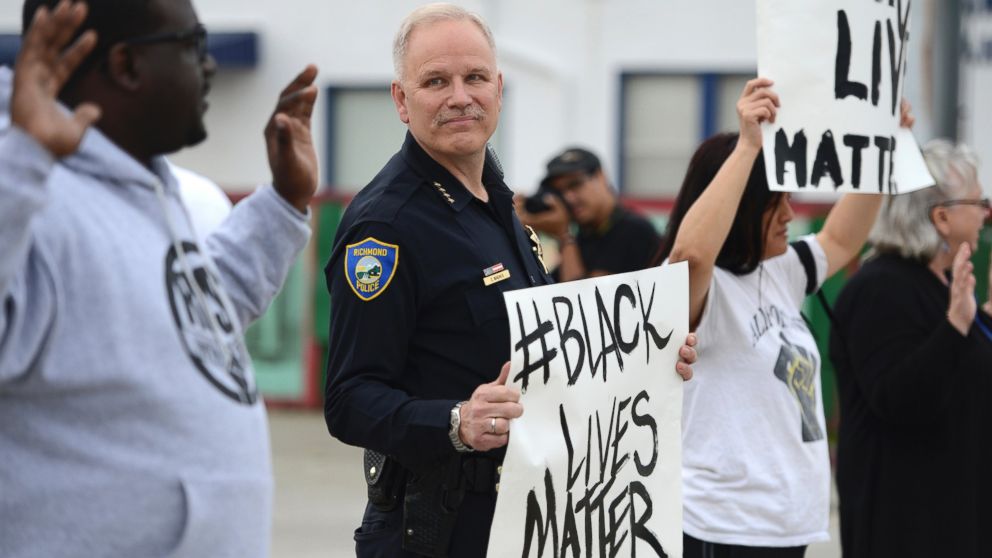Police Chief Stands Up to Rank and File Officers’ Criticism
Dec 17, 2014
Posted in Equal Rights/Equity, Ferguson/Black Lives Matter, Police-Public Safety
“I would do it again,” says chief who held “Black Lives Matter” sign

Richmond Police Chief Chris Magnus set off a storm of protests – including from some rank and file members of his wn department, when he held up a “#Black Lives Matter” sign at a local protest last week.
He told the SF. Chronicle this week that he wouldn’t hesitate if placed in the same situation.
“Sure, I would do it again, but I would like to be a little better prepared for the fallout,” he said Monday.
The police chief said he and about a half dozen other members of his command staff were at a community center when the protest began Dec. 9, and that a woman he was chatting with “on issues of the day” asked if he would hold the sign.
“I looked at it for a minute and realized this is actually pretty innocuous,” Magnus said. “That ‘black lives matter’ is something that I would think that we should all be able to agree upon. All lives matter.”
Richmond Police Officers Association attorney Alison Berry Wilkinson told the Oakland Tribune Friday that by participating in the protest while in uniform, Magnus broke the law he is charged with upholding.
“The Richmond Police Officers’ Association does not tolerate or condone illegal actions by any member of the department, including the chief,” Wilkinson wrote in an email. “By violating the law and then claiming the ends justify the means, the chief dishonored the department.”
California government code 3206 reads, “No officer or employee of a local agency shall participate in political activities of any kind while in uniform.”
Union president Hector Esparza did not respond to calls and an email seeking comment. Three Richmond police officers, who declined to give their names for fear of retribution, said the rank and file is divided over the chief’s actions.
O the police department’s Facebook page, Magnus characterized his actions as an apolitical gesture to build better relations between his department and minority communities.
“This wasn’t intended to be a ‘political’ statement or a way of suggesting any other lives (regardless of a person’s race) are unimportant to us,” Magnus wrote. “It was an important commitment of goodwill to acknowledge that we understand many minority individuals don’t trust the police and that we want to change this.”